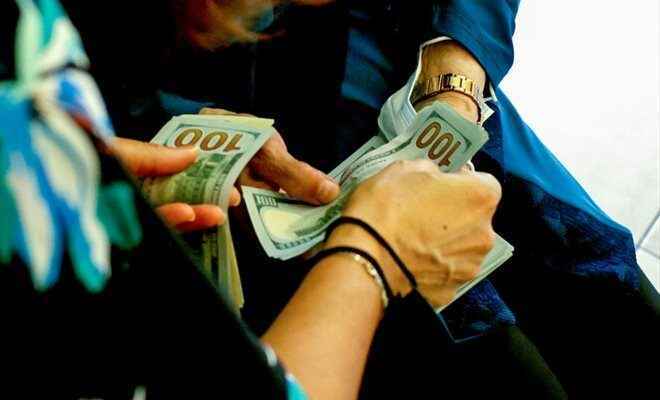Aerial view of solar panels installed in the village of Toula in northern Lebanon on August 29, 2022 (AFP/DYLAN COLLINS)
Thanks to solar energy, the inhabitants of the village of Toula located in the mountains of northern Lebanon will finally be able to treat themselves to ice cream for the first time in two years, a real luxury in a country crushed by heat and eaten away by power outages.
Since the Lebanese economy collapsed in 2019 after decades of corruption and mismanagement, the state has been unable to provide electricity for more than an hour a day.
Last winter, the village of Toula benefited from barely three hours of daily electricity thanks to private generators.
“Children have been asking for ice cream for two years, now it’s finally time,” rejoices Jacqueline Younes, owner of the village supermarket.
“We’re waiting for our first order of ice cream to arrive,” she says enthusiastically.

View of solar panels installed in the parking lot of a shopping mall in Byblos in northern Lebanon on August 26, 2022 (AFP/JOSEPH EID)
“Solar energy is no longer an alternative, it’s a necessity. Without panels, the village (of Toula) would have no electricity,” explains engineer Elie Gereige.
He is part of a team of volunteers who collected more than 100,000 euros from expatriates in Tula to build a solar farm with 185 panels on the grounds of the church.
These volunteers worked with the municipality to power the village generator with solar energy, reducing fuel costs while powering the village.
Solar power now helps keep the lights on for 17 hours, the engineer says.
Private generators being too expensive, a growing number of individuals, companies and public institutions are turning to solar, not for environmental reasons, but for lack of choice.
– Crossing the solar milestone –

Workers install solar panels in a parking lot in Byblos in northern Lebanon on August 26, 2022 (AFP/JOSEPH EID)
In Lebanon, roofs and car parks are dotted with solar panels, supplying electricity to entire villages as well as the only functional traffic lights in Beirut, thanks to a local NGO.
One hour from Tula, the Spinneys supermarket chain is installing panels in the car park and on the roof of its Jbeil branch to reduce the bills generated by the use of generators.
“I think we’re going to save about half the energy costs in Jbeil with the solar panels,” says Hassan Ezzeldine, president of Gray Mackenzie Retail Lebanon, owner of Spinneys.
The company spends between $800,000 and $1.4 million a month on electricity to power generators that run on diesel continuously, he says.
“The cost of generators today is dramatic. It’s a disaster.”

Beirut resident Zeina Sayegh shows the solar panels installed above her apartment on August 29, 2022 (AFP/JOSEPH EID)
His company had been considering integrating solar energy for years and the crisis finally convinced him, he says.
Housewife Zeina Sayegh says she paid about $6,000 to install solar power in her Beirut apartment last summer, when the state lifted most gasoline subsidies.
She was then the only one in her building to have passed the milestone and still depended on a subscription to a generator.
This year, nine neighbors joined her, covering the roof with metal bars.
Having switched to 100% solar, it must reduce its electricity consumption at night, but in return obtains continuous electricity during the summer, a luxury.
“I’m more comfortable that way, she says, I feel like I’m controlling the electricity and not the other way around”.
– Expensive change –

A woman counts the money she received from abroad, in Beirut on July 27, 2022 (AFP/JOSEPH EID)
But in a country facing endemic poverty and where savers are deprived of their bank deposits, switching to solar energy remains a costly operation.
Many Lebanese had to sell their car, jewelry or land to finance this change.
Before the crisis, only a few companies offered solar energy installations.
But the strong demand has opened the door “for anyone who wants to sell solar systems”, says Antoine Skayem of solar energy company Free Energy.
Demand from cash-strapped and donor-dependent municipalities has also skyrocketed, increasing political interference, he said.
© 2022 AFP
Did you like this article ? Share it with your friends with the buttons below.




